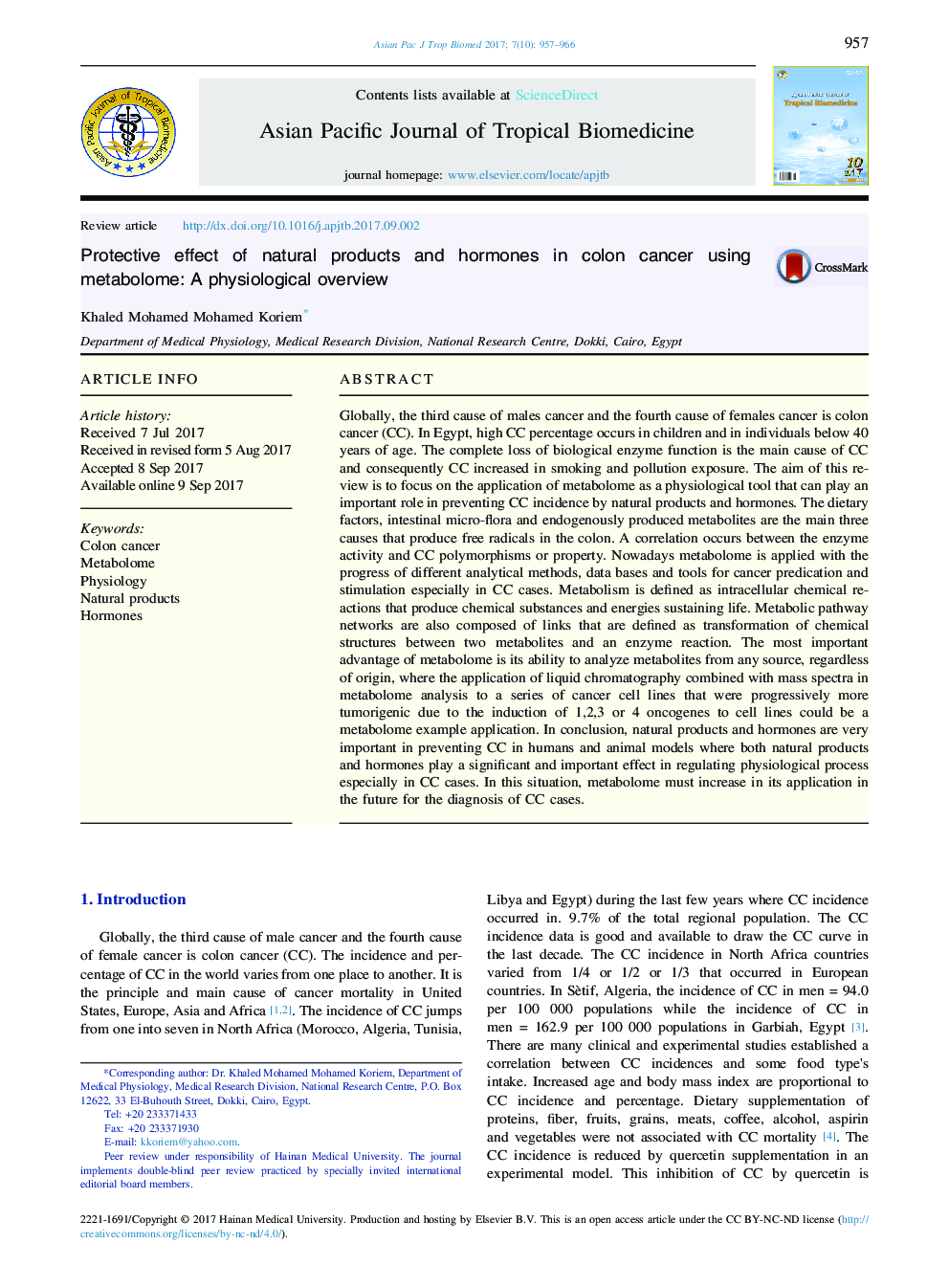| Article ID | Journal | Published Year | Pages | File Type |
|---|---|---|---|---|
| 8368660 | Asian Pacific Journal of Tropical Biomedicine | 2017 | 10 Pages |
Abstract
Globally, the third cause of males cancer and the fourth cause of females cancer is colon cancer (CC). In Egypt, high CC percentage occurs in children and in individuals below 40 years of age. The complete loss of biological enzyme function is the main cause of CC and consequently CC increased in smoking and pollution exposure. The aim of this review is to focus on the application of metabolome as a physiological tool that can play an important role in preventing CC incidence by natural products and hormones. The dietary factors, intestinal micro-flora and endogenously produced metabolites are the main three causes that produce free radicals in the colon. A correlation occurs between the enzyme activity and CC polymorphisms or property. Nowadays metabolome is applied with the progress of different analytical methods, data bases and tools for cancer predication and stimulation especially in CC cases. Metabolism is defined as intracellular chemical reactions that produce chemical substances and energies sustaining life. Metabolic pathway networks are also composed of links that are defined as transformation of chemical structures between two metabolites and an enzyme reaction. The most important advantage of metabolome is its ability to analyze metabolites from any source, regardless of origin, where the application of liquid chromatography combined with mass spectra in metabolome analysis to a series of cancer cell lines that were progressively more tumorigenic due to the induction of 1,2,3 or 4 oncogenes to cell lines could be a metabolome example application. In conclusion, natural products and hormones are very important in preventing CC in humans and animal models where both natural products and hormones play a significant and important effect in regulating physiological process especially in CC cases. In this situation, metabolome must increase in its application in the future for the diagnosis of CC cases.
Related Topics
Life Sciences
Biochemistry, Genetics and Molecular Biology
Biochemistry, Genetics and Molecular Biology (General)
Authors
Khaled Mohamed Mohamed Koriem,
